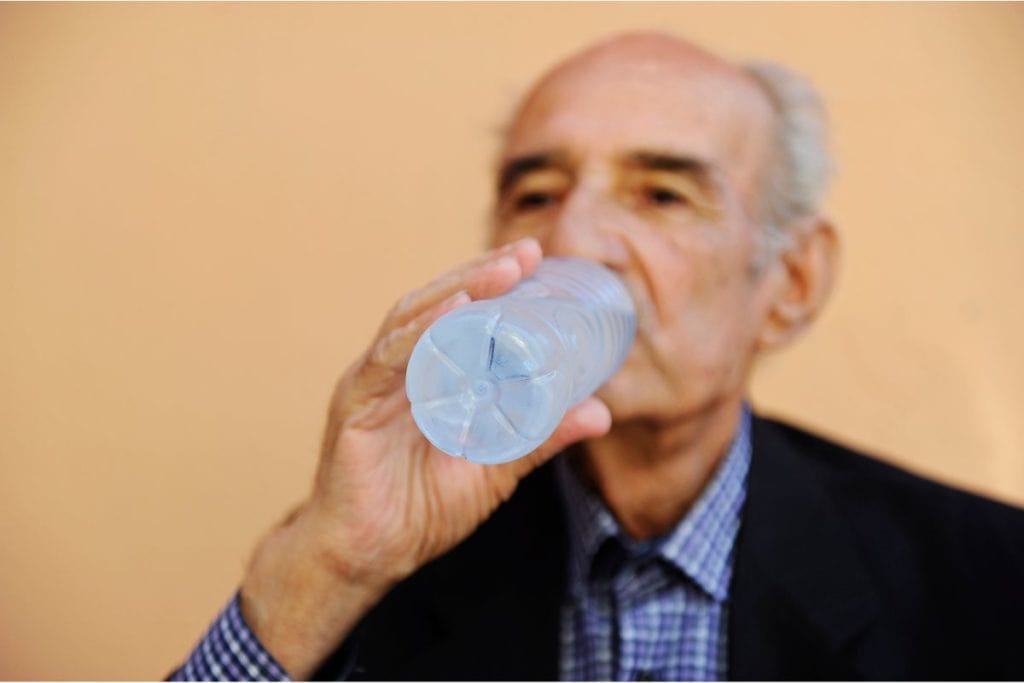Home » Cases We Win » Dehydration and Malnutrition
Dehydration & Malnutrition
The most common type of nursing home abuse and neglect

Table of Contents
Entrusting a nursing home with one’s care means that we expect a certain standard of care to be given to that individual. Unfortunately, nursing homes do not always meet that standard and it is the most vulnerable among us who suffer. One of the most common issues is neglect tied to dehydration. Seeing a loved one suffering from dehydration is a sign that the nursing home may not be fulfilling its duty of care to those it is tasked with assisting and looking after.
WHAT IS NEGLIGENCE?
Negligence requires the presence of several elements:
- Duty is the responsibility we have as individuals to act reasonably to protect ourselves and those in our care. In the nursing home industry, this may be referred to as the “standard of care”. In a nursing home, those treating patients and whatever corporation or organization operates the home have a duty to the residents of the home.
- Breach is the action that the defendant does that falls below that duty. This may be a lack of hydration, failing to include appropriate supplements or remedy issues as they become known.
- Causation ties the breach to the injury. Your attorney may use the phrase “But for” to show that the plaintiff would not have been injured without the defendant breaching their duty. To think about the dehydration example, any injuries that are tied back to that are said to be caused by the lack of appropriate hydration and nutrients.
- Damages are the harm that the plaintiff suffers. This can include a variety of things including physical injuries, emotional distress and medical bills.
Need to Report Dehydration or Malnutrition
NEGLIGENCE IN NURSING HOMES
There are a variety of factors that your attorney will look for in showing that there has been neglect in the nursing home. Factors such as documentation standards, staffing, cleanliness and preventative measures that are visible. This negligence can come together in the form of dehydration which occurs when the body releases more fluids than it takes in.
Issues tied to dehydration can be tied to a variety of factors, including cognitive factors such as Alzheimer’s and physical deterioration that comes with old age and changes to mobility. Just as every person in a nursing home is unique, they also have their own unique needs. Seniors may need supplements such as vitamins and other nutrients to maintain optimal health.
Combatting negligence is a hands-on activity that requires checking records, speaking with the patient and physically showing up when possible. Actions such as these not only show that you are present and able to notice downturns in health and care but also allow you to know the staff and how they interact with your loved one.
SIGNS OF DEHYDRATION
If you suspect a loved one is suffering from dehydration, there are several factors you can look for:
- Dry skin
- Dark, strong-smelling urine
- Feeling thirsty
- Eating less
- Peering very little throughout the day
- Fatigue
The Mayo Clinic notes that it is important to be vigilant for this, especially in the elderly who make up the majority of nursing home residents. It is important to catch these early as dehydration can result in worsening symptoms including diarrhea, an inability to keep water down and ultimately death if left untreated.
To take preventative measures, ensure lab tests are run, vital signs are stable and food and drinks are regularly and adequately supplied.
DAMAGES AND COMPENSATION YOU CAN RECOVER
Serious injuries can and do occur due to dehydration. You or your loved one may need extensive medical care, or even long-term care in the recovery effort. Fortunately, it is possible to recover some of those losses, including:
- Medical expenses, including emergency care and ongoing treatments
- Long term disability
- Pain and suffering, including emotional injuries
- Diminished quality of life
Tips by Case Type
Get a FREE Case Review
"*" indicates required fields
Are You Entitled to Compensation?
If you or a loved one have been the victim of nursing home abuse or neglect, you may be eligible for financial compensation.
